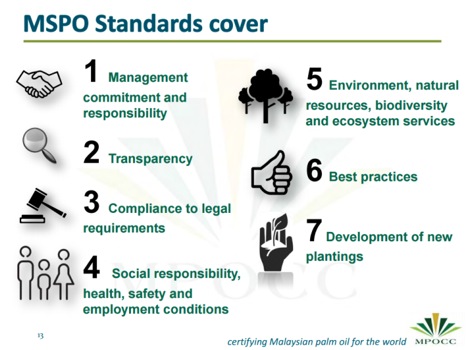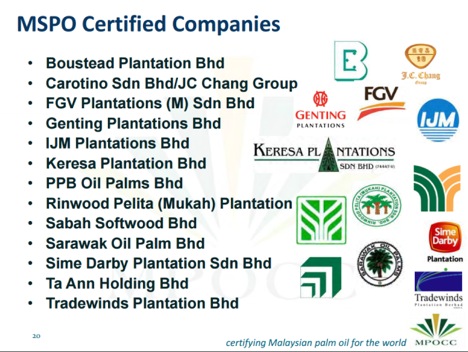Collaboration is key for Malaysian Palm Oil Certification Council
In 2017, Malaysian palm oil will be approaching 100 years of cultivation. During this spectacular journey from its humble beginnings to its current position as the world’s second largest producer of palm oil, the Malaysian palm oil industry have worked together to produce a commodity that is as good for the economy as it is for the planet and its people. The latest in its ongoing effort to raise the benchmark is the recent establishment of, the Malaysian Palm Oil Certification Council (MPOCC). This Council, formed in October 2015, is tasked with developing and incorporating the Malaysian Sustainable Palm Oil Certification (MSPO) standard as part of the Malaysian industry’s range of tools that are aimed at ensuring good agricultural practices coupled to sustainable practices backed by an international standard, the MSPO.
The MSPO standards
The MSPO certification standard is an effort to recognize and celebrate the highest quality Malaysian palm oil produced and processed in accord to a battery of existing national and international legislations and standards . It covers all aspects of palm oil production, from the field to the final product. Its four parts contains general principles as well as stringent criteria for independent small holders, oil palm plantations and organized smallholders, and palm oil mills.
The standards cover seven areas:
Management commitment and responsibility
- Transparency
- Compliance to legal requirements
- Social responsibility, safety and employment conditions
- Environment, natural resources, biodiversity and ecosystem services
- Best practices
- Development of new plantings
MSPO progress
At the recently completed Palm Oil Trade Fair and Seminar 2016 in Kuala Lumpur, Mr. Harnarinder Singh announced that as of September 2016, there are 42 MSPO-certified entities. This progress is wonderful news for the Malaysian palm oil industry which has a strong history of responsible cultivation. But as with every new endeavor, there have been challenges. For MPOCC these include recognition and acceptance of the MSPO standard in some markets.
He announced that MPOCC will be intensifying promotion of the MSPO certification, strengthening the standards, as well as enhancing collaboration with relevant agencies and stakeholders. It hopes to facilitate broader engagement with environmental and social NGOs, and grow partnerships with industry players, particularly smallholders. Smallholders cultivate more than 40 percent of the palm-planted land in Malaysia.
Malaysia is a leader is sustainable palm oil production
Malaysia is a leading producer of sustainable and non-GMO palm oil. Malaysia has 5.6 million hectares (13.9 million acres) planted with oil palm, spread in both Peninsular (west Malaysia) and the east Malaysian states of Sabah and Sarawak.
This oil palm cultivated area is actually less than 20 percent of percent of Malaysia’s total land. By comparison, approximately 45 percent of the United State’s total land area is dedicated to agricultural purposes, with 70 to 80 percent of it used for livestock.
These efforts by the Malaysian government to enhance and strengthen MSPO are timely if one considers the increasing negative sentiments expressed by some quarters over RSPO (see: Another palm oil certification body, RSPO, has been under scrutiny. According to Reuters’s article, activists groups are, “saying it is biased toward producers and its complaints panel is flawed”)
Article Credit:
Dr. Kalyana Sundram and Robin Miller













Leave a Reply